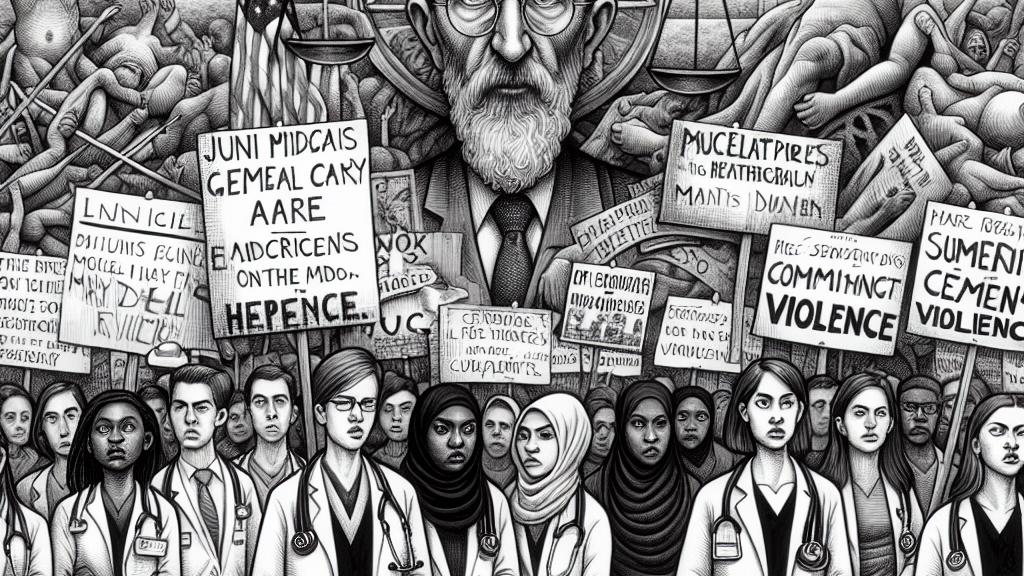Justice in the Balance: India’s Physicians Rally Against Violence
Overview
- In Kolkata, the horrific rape and murder of a trainee medic has triggered nationwide protests by doctors across India.
- Healthcare professionals demand increased safety measures and legal reforms to protect against violence.
- This tragedy highlights ongoing issues surrounding women's safety and the urgent need for societal change.

A Devastating Crime Shakes Kolkata
The tragic case of a 31-year-old trainee medic found raped and murdered at RG Kar Medical College in Kolkata has rattled the entire country of India. Discovered on August 9, 2024, the shocking details of this crime have not only fueled anger among the medical community but also ignited widespread protests. Junior doctors across the country have rallied to draw attention to this atrocious act, marking it as symptomatic of a larger epidemic of violence against women that continues to afflict Indian society. In recent years, despite significant reforms in laws aimed at protecting women, the prevalence of such violent crimes demonstrates that substantial gaps remain in the implementation of these protections.
The Medical Community's Response
In response to this appalling incident, the Indian Medical Association (IMA) orchestrated a 24-hour nationwide strike that mobilized over 300,000 doctors. The protests saw medical professionals from all corners of the country participating in candlelight vigils and demonstrations, demanding urgent reforms to ensure their safety at work. They called for the establishment of stricter security protocols in hospitals, which they likened to the measures enforced in airports. Their five key demands included the classification of hospitals as safe zones, specialized legislation addressing violence against healthcare workers, and comprehensive investigations into such incidents. The solidarity shown by the IMA reflects a collective frustration at the ongoing risks medical professionals face in a high-pressure environment often marred by aggression and violence.
Broader Implications and the Fight for Women’s Rights
This tragic event resonates beyond the medical community, affecting the broader discussion regarding women's safety in India. Despite prior legislation enacted in response to notorious cases, such as the 2012 gang-rape in Delhi, statistics show that incidents of rape and violence continue to rise. A staggering 31,516 rape cases were registered in 2022 alone, indicating a persistent societal issue that demands attention. Advocates argue that the reforms introduced have failed to create a safe environment for women, highlighting a significant disconnect between legislation and reality. The ongoing protests by doctors serve as a powerful reminder not only of the need for immediate justice for their colleague but also of a collective call for a cultural shift that prioritizes the protection of women's rights and dignity at all levels of society. The tragic loss of the young medic underscores the critical need for both preventive measures and systemic change to create a safer and more equitable environment for all.

Loading...